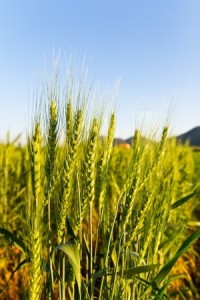HOW TO EAT GRAINS WITHOUT FEELING BLOATED
Worried about eating grains? Heard bad things about them? Concerned you’ll end up feeling bloated?
Geeta Sidhu-Robb founder of Nosh Detox has some advice… here is her list of good grains that you can add to your daily diet and advice on how to prepare them.
Good grains: Brown Rice, Amaranth, Millet, Quinoa, Teff, Buckwheat, Barley, Spelt, Kamut, Rye.

How to Cook Grains
1. Soak grains in water for 4 to 8 hours before cooking – it helps to release phytic acid which can bind with other nutrients and inhibit their absorption. Eg Zinc and Calcium. It also makes them much easier to digest and ensures NO bloating.
2. There is no such thing as over-soaking. Fermented grains just become alcohol 🙂 ……..have a party!
3. When cooking, all grains [but Millet] need 2 cups water to 1 cup of grain, and simply bring to the boil. They are cooked when soft, but don’t overcook them, mushy grains are unappealing.
4. Millet – needs no soaking, just toast the grains (they usually come toasted). Then cook them with 3 cups water for 1 cup millet. Millet needs more water.
5. Quinoa – rinse don’t soak. Quinoa has a natural pesticide which needs washing off to take away bitterness. You will see bubbles coming off it when you wash the grains.
6. Buckwheat – traditionally toasted. Bring the water to a boil and then add add the buckwheat and cook till soft.
7. Puffed Grains – high heat is used to ‘puff’ the grains which destroys most of the nutrients. Avoid.

Gluten in Grains
Rye, Wheat, Spelt, Kamut, Barley are high gluten grains. If you cannot digest gluten it’s generally because you have a compromised digestive system or intestinal issues. Eg. IBS, Candida. [this is treatable using food BTW]
In that case eat the non or low gluten grains – Buckwheat, amaranth, quinoa, rice, oats, wild rice, teff and millet.
How to Store Grains
Whole grains have a small amount of oil and if they are exposed to light, air or heat, they will go rancid. Refined grains have had all the outer shell removed so last longer but have lost most of their nutrients.
Store in airtight containers, preferably glass and in a cool place.

When to Eat Grains?
Eat grain for breakfast, lunch and dinner in a variety of ways. They can be savoury or sweet. A good rule of thumb is to replace potatoes or rice with them.
